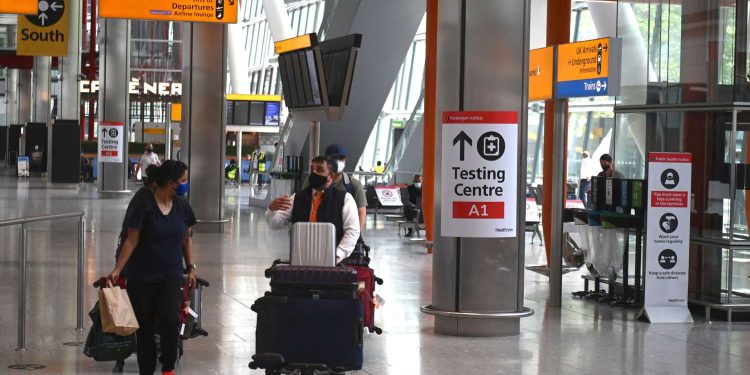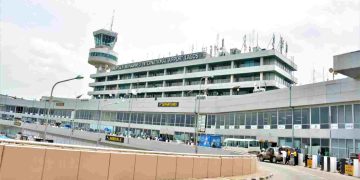With the global air travel industry gaining momentum right after the COVID-19 health scare that nearly crippled the global aviation industry, Africa’s skies have seen a surge in activity recently.
In 2022, a whopping 178.6 million travellers made their way through the continent’s 477 airports, marking a significant increase in comparison to the same period the previous year.
These figures, released by Airports Council International (ACI), provide insight into the bustling travel landscape across Africa.
Quarterly Breakdown of Travel
Breaking down the numbers quarter by quarter in the year under review, the load factor unveils a consistent trend in the industry across the continent of Africa.
The first quarter witnessed 35.5 million travellers within the continent, followed by 41.9 million in the second quarter, 51.7 million in the third quarter, and 49.5 million in the final quarter. The cumulative total for the year stood at 178.6 million, as indicated by ACI.
Ranking Africa’s Busiest Airports
From the report released by ACI, let’s explore the top 10 busiest airports in Africa for the year 2022, based on the percentage of passengers arriving and departing from each airport during this period.
- Cairo International Airport (Egypt): Claiming the top spot, Cairo International Airport facilitated the movement of 20 million travellers. With an impressive 76% increase compared to the previous year, this airport remained the gateway for countless journeys across the globe.
- Tambo International Airport (South Africa): Next is Tambo International Airport. Serving as South Africa’s premier airport, O. R. Tambo International handled 14.8 million passengers. The airport, named after the renowned anti-apartheid activist Oliver Reginald Tambo, offers a gateway to both domestic and international destinations.
- Cape Town International Airport (South Africa): Next is another airport is South Africa, called Cape Town International Airport. Aptly known for its modern facilities, Cape Town International Airport welcomed 7.9 million passengers. This hub, celebrated for its advanced systems, primarily catered to tourists exploring the picturesque city.
- Mohammed V International Airport (Morocco): In the 4th place is Morocco’s Mohammed V International Airport. Located in Casablanca, Morocco, Mohammed V International Airport stood as Africa’s fourth busiest. With 7.6 million passengers traversing its terminals, it served as a significant departure and arrival point for Moroccans traveling to and from Europe.
- Hurghada International Airport (Egypt): Safeguarding the fifth place, Hurghada International Airport in Egypt facilitated the journeys of 7.2 million travellers. As one of Egypt’s bustling gateways, this airport connected the nation to destinations across Europe, North America, and Asia.
- Bole International Airport, Addis Ababa (Ethiopia): Emerging as the sixth busiest airport, Bole International Airport in Addis Ababa hosted 6.7 million travellers. It stood as the vital hub for Ethiopian Airlines, Africa’s largest carrier in terms of passengers served.
- Jomo Kenyatta International Airport, Nairobi (Kenya): The gateway to Kenya, Jomo Kenyatta International Airport processed 6.6 million travellers. The airport’s consistent service to over 50 countries highlight its vital role in African travel.
- Murtala Muhammed International Airport, Lagos (Nigeria): Claiming the title of Nigeria’s busiest airport, Murtala Muhammed International Airport managed 6.5 million passengers, indicating a 15% growth from the previous year. This Lagos-based terminal accommodates both domestic and international flights.
- Houari Boumediene Airport, Algiers (Algeria): Houari Boumediene Airport in Algiers secured the ninth spot, facilitating the travel of 6.3 million individuals. Named after a former President of Algeria, this airport plays a key role in Algeria’s air connectivity.
- Nnamdi Azikiwe International Airport, Abuja (Nigeria): Completing the top 10 list, Nnamdi Azikiwe International Airport in Abuja saw 5.9 million passengers pass through its gates. This airport’s growth of 11% from the previous year underscores its importance in Nigeria’s travel landscape.
Predicting Future Trends
As air travel continues to evolve, these numbers shed light on the ever-changing travel patterns in Africa. Factors such as economic growth, technological advancements, and shifting tourism trends will shape the continent’s air travel landscape.
The development of these key airports, coupled with government initiatives and global influences, will significantly impact Africa’s position on the global aviation stage.
As travellers seek greater connectivity and convenience, it’s likely that these airports will remain at the heart of Africa’s journey into the future.












